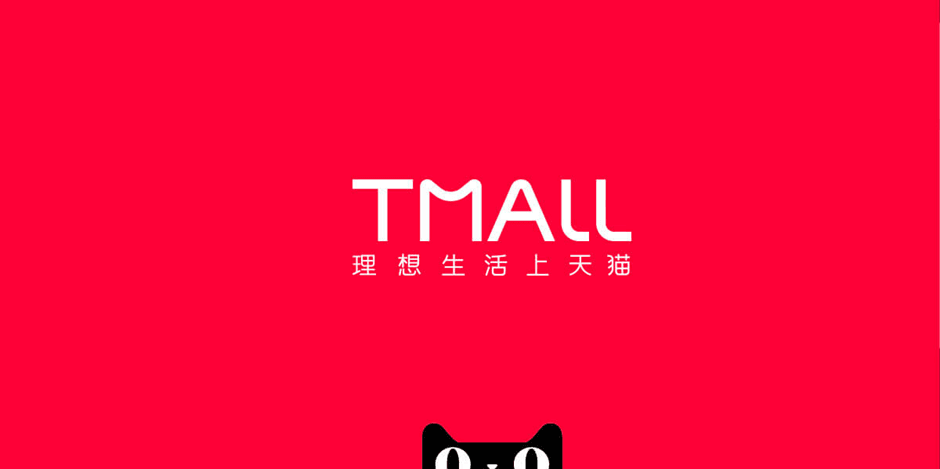Meet Tmall, a behemoth in the world of online shopping. Imagine the biggest mall you’ve ever seen, transformed into a digital marketplace bustling with activity – that’s Tmall. This virtual retail giant has become the go-to destination for Chinese consumers seeking a premium shopping experience. Think of it as China’s answer to Amazon, but with a distinct focus on established brands and a reputation for quality that’s second to none. From a vast selection of products to a seamless shopping experience, Tmall has redefined e-commerce in one of the world’s most dynamic consumer markets.
Facts About Tmall
Ever heard of a shopping website called Tmall? If you’re outside of China, you might not be familiar with this e-commerce titan. Let’s delve into some key facts about Tmall and understand what makes it such a dominant force in online retail.
A Giant Among Online Stores
- The Undisputed B2C King: Tmall reigns supreme in the business-to-consumer (B2C) e-commerce arena in China. It’s so far ahead that competitors are struggling to keep pace.
- A Sea of Shoppers: Picture over 500 million people browsing your store every month – that’s the reality for Tmall! Its user base is massive and continues to grow.
- Target: Young Professionals: Tmall knows its audience. Their ideal customer? Young professionals between 24 and 32 with disposable income and a taste for quality.
Why Tmall Rules the Roost
- Sales Galore: When it comes to sheer volume of sales, Tmall blows its competition out of the water, generating billions of dollars annually.
- Aiming for the Stars: Tmall isn’t interested in being just another online discount store. They’re laser-focused on a premium experience, showcasing products and services that appeal to a more discerning shopper.
- Loyal Customers: Tmall has earned the trust of Chinese consumers. Its reputation for reliability, exclusive deals, and an engaging shopping experience keeps customers coming back for more.
What Makes Tmall So Great?
- Something for Everyone: Searching for a specific brand or want to discover something unique? Tmall has you covered with its incredibly diverse product range.
- Smooth Sailing: Nobody enjoys a clunky online shopping experience. Tmall understands this, prioritizing a user-friendly platform with secure payment options and lightning-fast delivery.
- Powered by Tech: Tmall’s behind-the-scenes technology is as impressive as its storefront. It takes serious computing power to handle millions of users and transactions seamlessly, and Tmall has invested heavily in creating a robust infrastructure.
More Than Just Shopping
- A Launchpad for Businesses: New businesses and startups looking to make a splash in the Chinese market are increasingly turning to Tmall. It’s a prime opportunity to get their products in front of a vast and eager audience.
- Unlocking the Secrets of Shoppers: Tmall’s treasure trove of customer data – demographics, spending habits, preferences – is invaluable for businesses seeking to understand the Chinese consumer.
- Keeping Customers Happy: Tmall has cracked the code when it comes to customer engagement. Their approach has become a case study for other e-commerce platforms eager to cultivate a loyal following.
Simply put, Tmall is a powerhouse in the world of online shopping, revolutionizing the e-commerce landscape in China and offering valuable lessons for the rest of the world.
How Big is Tmall in China?
Tmall’s presence in China’s e-commerce landscape is nothing short of colossal. To put it simply, it’s like the Amazon of China, but with even greater influence in some aspects. With a staggering 877 million active shoppers navigating its virtual aisles each month – more than double the entire population of the United States – Tmall is a dominant force, particularly in the realm of business-to-consumer (B2C) sales, especially when it comes to purchasing directly from well-known brands.
But it’s not just about the sheer volume of shoppers that sets Tmall apart. Chinese consumers view it as the destination for high-quality, authentic goods. This trust stems from Tmall’s meticulous approach to curation. Unlike platforms that allow anyone to sell products, Tmall is incredibly selective about the merchants allowed on its platform, ensuring customers can shop with confidence, knowing they’re getting the real deal.
The numbers speak for themselves. Chinese consumers don’t just visit Tmall; they spend an average of 7 minutes a day browsing its offerings. That’s like a mini-shopping spree every single day! This speaks volumes about the platform’s engaging nature and its ability to keep shoppers coming back for more.
Several factors contribute to Tmall’s success. One key element is their mastery of personalization. Imagine stepping into a store where every product recommendation feels tailor-made for you. That’s the experience Tmall strives to create. Sophisticated algorithms analyze user data to curate personalized recommendations, suggesting products that genuinely align with individual preferences. They even offer personalized discounts and deals!
In short, Tmall’s impact on the Chinese market is undeniable. It’s not just big – it’s influential, shaping the standards of online shopping in one of the world’s most important e-commerce arenas. As China’s digital landscape continues to evolve, Tmall’s position at the forefront seems secure.
Who Owns Tmall in China?
The mastermind behind Tmall, the e-commerce giant reigning supreme in China, is none other than Alibaba Group. This Chinese tech behemoth is often referred to as the “Amazon of China,” and Tmall is one of its most prized assets. Imagine Alibaba as a sprawling online shopping mall, and Tmall is the section dedicated to premium brands and curated experiences.
Launched in 2008, Tmall has become the ultimate online destination for Chinese shoppers seeking a vast and diverse selection of products. From fashion and electronics to groceries and even automobiles – with over 70,000 brands, both Chinese and international, vying for their attention – it’s a digital shopper’s paradise.
To put Tmall’s dominance into perspective, it even gives Amazon a run for its money in China. As the largest B2C e-commerce platform in the country, it holds the top spot in all of Asia.
Here’s the catch – Tmall is exclusively available in China. It’s like an exclusive club for Chinese consumers and businesses eager to connect within this thriving digital ecosystem.
Here’s a quick recap:
- Owner: Alibaba Group
- What is it?: China’s largest B2C e-commerce platform
- Reach: Exclusive to China
So, the next time you hear about Tmall, remember – it’s Alibaba’s brainchild and a major player in the global e-commerce landscape.
How Does Tmall Make Money?
Imagine a bustling online marketplace where shoppers converge to discover and purchase top-notch products from their favorite brands. That’s Tmall in a nutshell. But unlike traditional retailers who purchase and sell inventory, Tmall operates on a commission-based model, acting as a facilitator connecting eager shoppers with third-party merchants.
Here’s the brilliance of this approach: each time a shopper makes a purchase on Tmall, the platform takes a small percentage of the sale. This means Tmall doesn’t have to deal with the logistical headaches of inventory management, warehousing, or shipping. Instead, they focus on creating a seamless and enjoyable shopping experience, leaving the heavy lifting to their network of merchants.
Tmall’s success is also linked to its stringent vetting process for merchants. Unlike its sister platform, Taobao, which caters to smaller businesses and individual sellers, Tmall sets its sights higher. They curate their platform to feature established brands and enforce strict quality control measures. This strategic decision is a win-win. By offering a carefully curated selection of reputable products, Tmall attracts shoppers willing to pay a premium for quality and peace of mind, which in turn, attracts high-caliber merchants.
This approach has catapulted Tmall to the forefront of China’s ultra-competitive e-commerce market. They’ve cultivated a reputation for being a trusted destination for shoppers seeking a premium experience.
Tmall’s recipe for success hinges on several key elements:
- Commission-based revenue: They take a cut of each sale, simplifying operations and allowing them to focus on the customer experience.
- Focus on established brands: Tmall prioritizes quality and brand recognition, attracting a more discerning shopper.
- Stringent quality standards: Only products that meet their high standards make it onto the platform.
- Leveraging Alibaba’s assets: Tmall benefits from Alibaba’s vast technological infrastructure and resources.
- A massive, engaged user base: Tmall has built a loyal following of shoppers who trust the platform.
So, the next time you browse Tmall’s virtual shelves, remember that there’s a well-oiled machine working behind the scenes, driven by strategic business decisions and a deep understanding of consumer desires.
How Many Users Does Tmall Have?
Tmall’s user base is nothing short of astounding. As of June 2022, it boasted a remarkable 939 million active users every single month. To put that into perspective, that’s almost a billion people – a number larger than the population of many countries – browsing, shopping, and adding to their carts on this e-commerce platform.
Tmall’s success can be attributed to its vast and diverse selection of over 70,000 brands, attracting a wide range of consumers seeking local Chinese products as well as international favorites. However, Tmall’s appeal extends beyond mere selection. It’s particularly popular among young professionals with disposable income who appreciate the platform’s focus on quality, evident in its carefully curated selection of brands, reliable shopping experience, secure payment systems, and efficient delivery services.
But Tmall’s impact extends far beyond Chinese borders. It’s become a gateway for brands worldwide to tap into the lucrative Chinese market. That new gadget you’ve been eyeing? There’s a good chance it’s available on Tmall, ready to be shipped to millions of potential buyers.
With its massive user base and an evolving platform, Tmall shows no signs of slowing down. It’s committed to making online shopping seamless, convenient, and enjoyable, and the numbers suggest they’ve found a winning formula.
What Does Tmall Stand For?
“Tmall,” while catchy and memorable, actually has straightforward origins. The “T” harks back to “Taobao,” another major player in China’s e-commerce scene, as Tmall initially began as an offshoot of Taobao, which at the time, was more akin to a digital flea market – a vast online bazaar where you could find almost anything.
As Taobao gained traction, so did the desire for a more curated, brand-centric shopping experience. Recognizing this shift in consumer behavior, Tmall emerged as a distinct platform within Taobao, offering established brands, both domestic and international, a dedicated space to connect directly with consumers seeking quality and authenticity. The “Mall” in the name was intended to evoke a sense of familiarity and inspire trust, much like the physical shopping malls people frequented in the offline world.
Over time, Tmall blossomed into its own distinct entity, becoming synonymous with a premium shopping experience in the minds of Chinese consumers. While it might have started as “Taobao Mall,” the shortened Tmall name stuck, capturing the platform’s essence in a concise and memorable way.
What is the Biggest Website in China?
In China’s digital realm, where online shopping reigns supreme, Tmall sits at the top as the biggest e-commerce platform. Launched in 2008 by Alibaba Group, Tmall is the go-to destination for Chinese shoppers seeking quality brands and a wide selection of products, connecting them with both domestic and international companies.
Tmall’s reach extends globally through its sub-platform, Tmall Global, which has become a major force in cross-border e-commerce. This global arm of Tmall facilitates nearly half of all cross-border online sales in China, showcasing the platform’s growing influence on the global stage.
One indicator of Tmall’s dominance is the amount of time users spend on the platform. On average, users spend around seven minutes each day browsing and shopping on Tmall. In the fast-paced world of the internet, where attention spans are constantly challenged, this level of engagement is significant. It suggests that Tmall has become deeply ingrained in the online shopping habits of millions of Chinese consumers.
What is the Largest Shopping Platform in China?
China’s e-commerce market is a dynamic landscape with numerous players, but Tmall stands out as the largest shopping platform in the country. This Alibaba-owned platform, often compared to Amazon in its scope and influence, focuses on connecting businesses directly with consumers.
What sets Tmall apart is its commitment to quality and curation. Imagine a shopping mall where only the best, most reputable brands are given space – that’s the vibe Tmall cultivates. They have a rigorous vetting process for merchants and prioritize established brands, ensuring that products sold on their platform are authentic and meet their high standards.
Tmall’s appeal lies in its ability to cater to a wide range of shoppers. Whether you’re searching for everyday essentials made in China or seeking imported goods from around the world, Tmall likely has what you’re looking for. And for those outside China looking to tap into this massive market, Tmall Global provides a dedicated platform for international brands to connect with Chinese consumers, solidifying Tmall’s role as a key player in the global e-commerce landscape.
Here’s a breakdown of Tmall’s winning formula:
- They’re Picky: Strict quality control and brand verification processes build trust with shoppers.
- They’re Diverse: Tmall boasts a vast selection of products spanning various categories and price points.
- They’re Global: Tmall Global provides international brands with direct access to Chinese consumers.
- They’re Engaging: Tmall has mastered the art of creating a shopping experience that keeps people coming back for more.
While Tmall currently holds a commanding lead in the Chinese e-commerce arena, the market is constantly evolving. New competitors and trends can emerge rapidly. However, Tmall’s success has earned it a secure position as a digital shopping destination, continuously adapting to stay ahead of the curve.
What is the Largest App Store in China?
Navigating China’s digital landscape can be complex, but when it comes to apps, one platform stands out: Tmall. While not traditionally considered an app store in the same way as Apple’s App Store or Google Play, Tmall, with its massive reach and influence, has become the de facto destination for many Chinese consumers seeking a curated selection of brands and products.
Owned by Alibaba and often described as China’s answer to Amazon, Tmall has a reputation for quality and authenticity. They are incredibly selective about the merchants allowed on their platform, prioritizing established brands and ensuring that products sold meet their high standards. This focus on quality has resonated with Chinese shoppers who are increasingly seeking trustworthy sources for their online purchases, especially when it comes to brands like Chanel and H&M, which have established a presence on Tmall to directly connect with Chinese consumers.
Tmall’s global platform, Tmall Global, has been a game-changer for those seeking international products. It’s a window to the global shopping scene, offering a vast array of goods from all corners of the globe. In fact, it’s estimated that Tmall Global controls nearly half of all cross-border e-commerce in China, highlighting its growing influence.
Tmall’s success can be attributed to its deep understanding of the Chinese consumer. They’ve created an environment that prioritizes quality products, a trusted shopping experience, and access to both local and international brands. While it’s difficult to predict how the e-commerce landscape will evolve, Tmall’s current position as the largest app store in China demonstrates its ability to adapt and thrive in a constantly changing digital world.
What is the Global Ranking of Tmall?
While Tmall might not yet be a household name in every corner of the globe, its dominance in China’s e-commerce market and its growing international presence have secured its position as a major force in online retail. It’s important to remember that Tmall’s success is deeply intertwined with China’s massive consumer market. As the country with the world’s largest population, China’s online shopping habits heavily influence global e-commerce trends.
Some experts argue that simply focusing on global rankings might not fully capture Tmall’s impact. They suggest that Tmall’s influence extends beyond sheer numbers, as it’s also reshaping how international brands approach e-commerce, particularly when it comes to engaging with Chinese consumers.
Pinpointing an exact global ranking for Tmall is challenging. There isn’t a single, universally accepted list that accurately reflects the complexities of the constantly shifting e-commerce landscape. New platforms emerge, existing ones evolve, and rankings can fluctuate based on various factors.
However, one thing is certain: Tmall’s presence on the global stage is undeniable. Through Tmall Global, it’s become the go-to platform for brands seeking to establish a foothold in the lucrative Chinese market, solidifying its role as a key player in the world of online retail.
Does China Have the Biggest Mall in the World?
Determining the “biggest” mall in the world requires a bit of clarification. When we think of shopping malls, we often envision sprawling physical structures with countless stores. China certainly has its fair share of these massive retail complexes. However, the rise of e-commerce has transformed the way people shop, particularly in China.
What if the mall wasn’t confined by physical limitations but existed entirely online?
Enter Tmall. Owned by Alibaba, this online shopping platform operates like a giant virtual mall, hosting millions of products from a diverse array of brands, both Chinese and international. With an astounding number of monthly active users, surpassing the populations of many countries, Tmall could be considered the biggest mall in the world, at least from a purely numerical perspective, considering its vast reach and the sheer variety of goods available.
Of course, some might argue that the physical experience of a traditional mall – the bustling atmosphere, the sensory overload of browsing, the joy of leaving with bags full of purchases – can’t be replicated online. And they have a point! There’s a certain magic to the physical shopping experience that digital platforms are still working to fully capture.
Ultimately, whether it’s the virtual aisles of Tmall or the sprawling floors of a brick-and-mortar giant, China’s commitment to retail, both online and offline, is undeniable. They’ve embraced the world of shopping on a grand scale.
Bonus:
Are you a fan of pop art? Immerse yourself in the fantastic universe of pop art by clicking on fun facts about pop art.
Did you know that the wheelbarrow was utilized for construction before being used for farming? Discover more intriguing facts about wheelbarrows.
Ever wondered how a snowman is made? Here are some mind-blowing revelations. Read some snowman facts.
- Crypto Quotes’ Red Flags: Avoid Costly Mistakes - June 30, 2025
- Unlock Inspirational Crypto Quotes: Future Predictions - June 30, 2025
- Famous Bitcoin Quotes: A Deep Dive into Crypto’s History - June 30, 2025
















